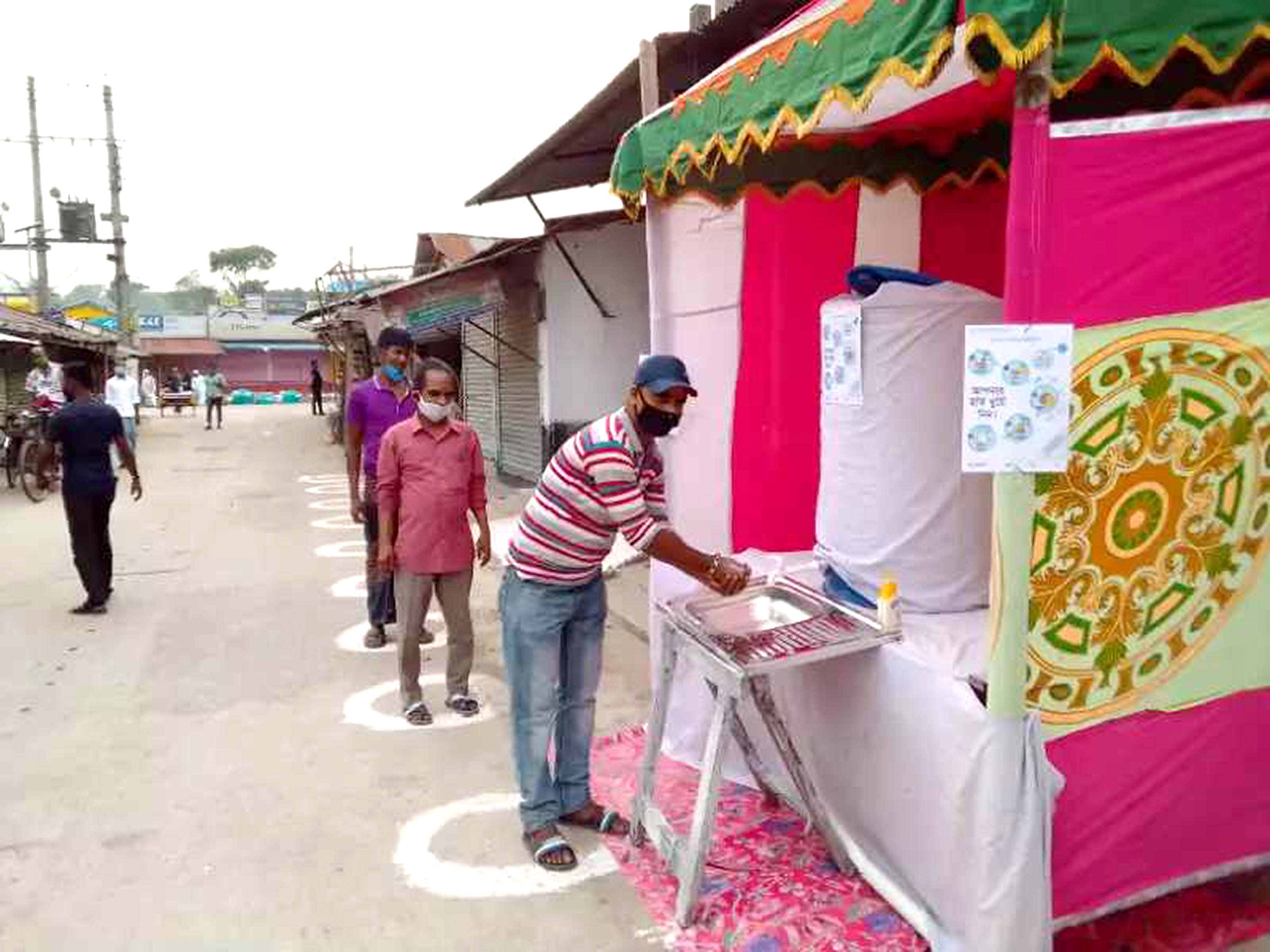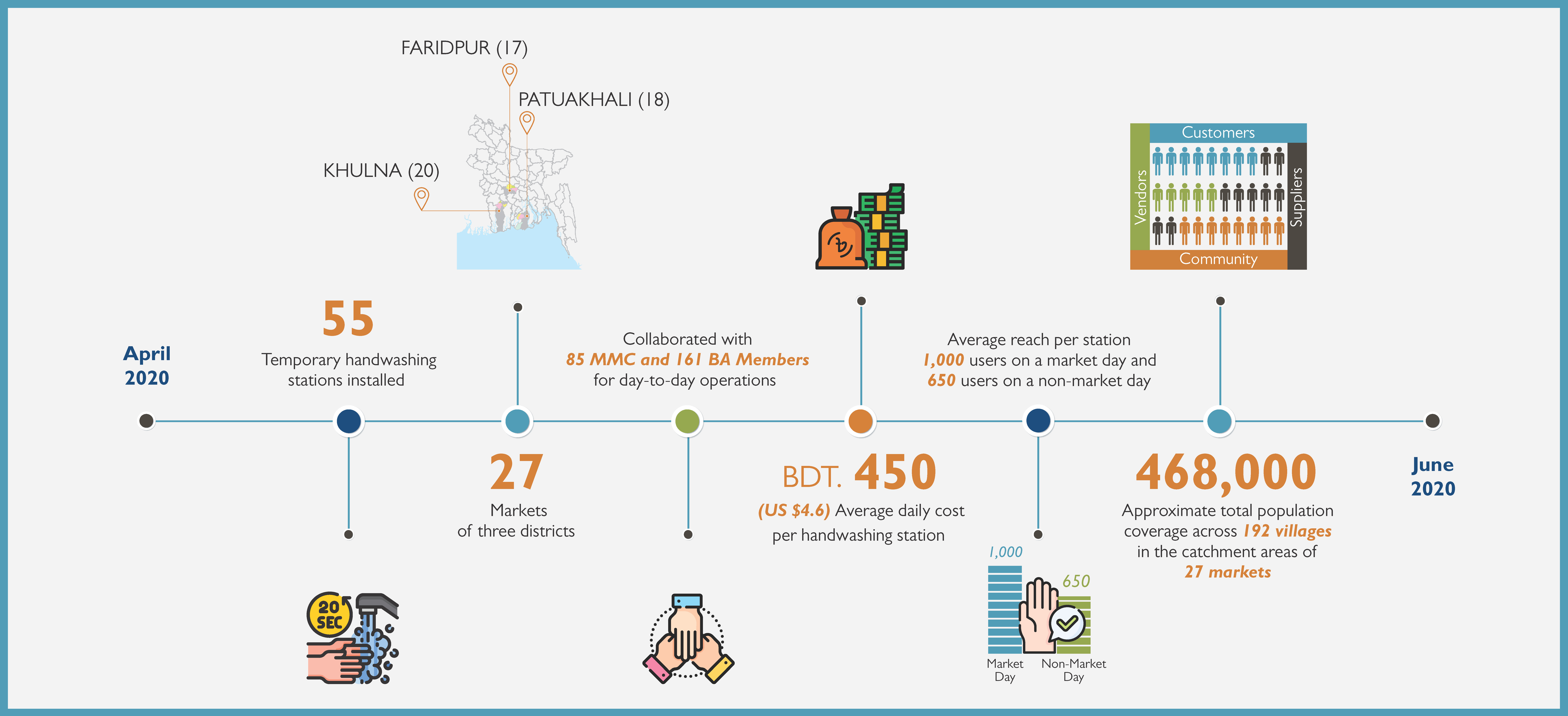Handwashing Fights COVID-19 in Bangladesh


Proper handwashing is a powerful way to reduce COVID-19 transmission. Soon after COVID-19 spread to Bangladesh, the USAID-funded Feed the Future Bangladesh Nutrition Activity installed 55 temporary handwashing stations (HWS) in 27 markets in Faridpur, Khulna, and Patuakhali districts. The stations were in easily accessible locations and included social distancing markings and posters depicting proper handwashing procedures. They targeted vendors, customers, and suppliers.
The Activity, implemented by Abt Global, collaborated with local market management committees (MMCs) and business associations (BAs), to pay for and manage the stations. Average daily cost per station is BDT. 700 (US $8.10), including station rental, soap, water, maintenance, cleaning, drainage, and caretaker wages. Since installation, an average of 1,000 people wash their hands at each station on a market-day and 650 on a non-market day.


Keys To Success
- Vendors ask customers if they have washed hands, and if not, ask them to go to the nearest HWS.
- Stations function as awareness-raising tools for handwashing in the market and at home—and the Activity.
Challenges & Solutions
- Staff travel to the markets was restricted until the end of April, so the Activity asked MMC/BA members and vendors to take photos and short video clips of the stations in the interim.
- Building trust with vendors to supply and install the stations was initially difficult. Involving MMC/BA members resolved this issue.
- The lockdown delayed printing of handwashing posters until the end of April. The Activity printed flyers via computer to attach to the stations from Day One.
Weaknesses
- Stations are not connected to the water systems, and not all are close to a water source (tube well).
- Some stations aren’t connected to main drainage systems.
Next Steps & Recommendations
- Users have demanded permanent handwashing stations. The Activity completed four designs of permanent HWS to pilot in July 2020.
- Larger markets need more handwashing stations. Monitoring shows that in Khulna on a market day, more than 3,200 people used each station, and almost 2,500 users did on a non-market day.
- Permanent HWS should have water sources and drainage. They should be placed near the tube well or connected to the running water system and also connected to the main drainage system.
Conclusion
The Activity has raised awareness about proper handwashing practices for replication in households and other locations. The intervention should be upgraded and scaled up as a key activity for water, sanitation, and hygiene even after the COVID-19 threat passes.
